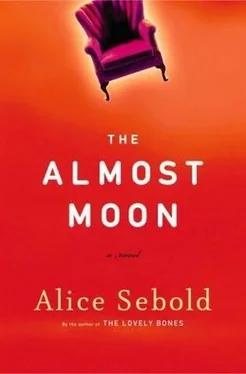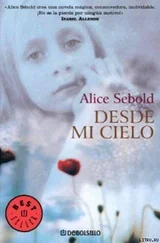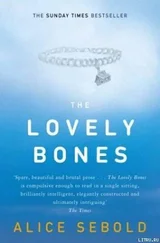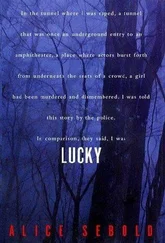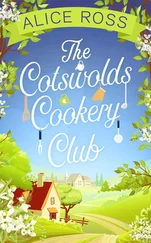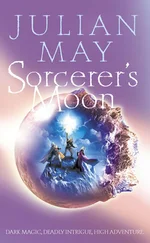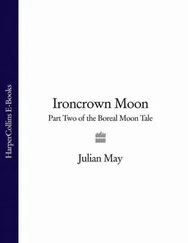“And then I’m going to get you something else to drink because you obviously detest that.”
I had held the port in my hand but could not bear even to pretend to sip.
“Here they are: ‘fucking bastard.’ ”
“Fucking bastard,” I repeated.
“Again.”
“Fucking bastard,” I said, more surely.
“With verve!”
“Fucking bastard!” I said, almost yelling.
I sat back into the couch, on the verge of laughing.
“There are millions of them. You can’t beat them, believe me. You can only hope to find a way to live quietly among them. Sitting and reading in this window, with all my antiques and books… You wouldn’t know it by looking at me, but I’m a revolutionary.”
I wanted to ask him if he had a boyfriend, but my mother had scolded me never to pry.
“You know I’m a book collector,” Mr. Forrest said. “Would you like to see some of my newest acquisitions?”
“What about my mother?” I asked. I pictured her curled around her transistor radio like a conical seashell.
“Her?” he said, and stood with his glass. “We both know she’s not going anywhere.”
He came over to retrieve my undrunk port. Tosh’s tail beat against the back of the couch as he drew near.
“I hate her,” I said.
“Do you really, Helen?” He held both our glasses and looked down at me.
“No.”
“You will always be stronger than she is,” he said. “You don’t know that yet, but it’s true.”
“She let Billy Murdoch die,” I said.
“That was her illness, Helen, not her.”
I stared up at him, not wanting him to stop.
“It must be obvious to you that your mother is mentally ill,” he said. He placed the glasses on the silver tray and turned back to me. “What does your father say about it?”
“Mentally ill.” It was as if someone had just very gently placed a bomb in my lap. I didn’t know how to dismantle it, but I knew no matter how scary it might be, there was a key inside it-a key to all the hard days and locked doors and crying jags.
“Haven’t you ever heard those words?”
“Yes,” I said meekly.
“Haven’t you ever connected them with your mother?”
I had used the word “crazy” but never “mentally ill.” “Crazy” didn’t seem so bad. “Crazy” was a simple word like “shy” or “tired” or “sad.”
Tosh jumped off the couch, sensing Mr. Forrest’s desire to move. I stood.
“We’ll look at books and make you a G &T,” he said. “You don’t owe your life to your mother, you know. Nor does your father, for that matter.”
“You just said she was mentally ill.”
“Your mother is a survivor. I’ll no doubt send you home with a book or two that she wouldn’t know about otherwise, and you’ll return the photograph as a favor to me.”
Tosh, Mr. Forrest, and I all went through the dining room and into the kitchen. After the two other rooms, the kitchen was a shock. It was all white and incredibly utilitarian. Nothing was out on the counters that would suggest he’d eaten or prepared anything to eat in months.
He opened his fridge while I leaned against the sink.
“You can give Tosh a treat,” he said with his back to me. He found the bottles he wanted and opened the freezer. “They are in that white porcelain bunny jar by the sink.”
While I fed an ecstatic Tosh treats that looked like miniature bunnies, Mr. Forrest made me a drink.
“Why are you friends with her?” I asked.
“Your mother is fascinating. She’s incredibly witty and beautiful.”
“And mean,” I said.
“Regrettably you and your father see a good deal more of that than I ever will. We have books. We can keep on that level, and then I leave.”
He handed me my drink. “Imagine, if you will, the demise of all the fucking bastards of the world,” he said, and knocked his glass to mine.
“What about my mother?”
“Your mother is not a fucking bastard. Fucking bastards are simple by nature. Now drink up, because soon you’ll be in a room where no liquids are allowed.”
The G &T was better than the port, and cool. We drank as Mr. Forrest led me down a hall that ran off the kitchen.
“Somewhere in this hallway I turn into another person,” he said. “But for your sake I’m going to try and remain tethered to reality.”
We reached a doorway that was half glass, through which I could see small spotlights in the large room on the other side.
“Let’s put our drinks down here. Are your hands clean?”
I placed my drink next to his on a built-in shelf.
“I think so,” I said.
He reached up to a second shelf and brought down a wooden box. Inside there were several pairs of small white gloves made of cotton.
“Here, wear these.”
I put on the gloves and stared at my hands. “I feel like Mickey Mouse,” I said.
“Minnie,” he corrected. “Are you ready?”
“Yes.”
He turned to Tosh. “Sorry, boy.”
He opened the door and flipped a switch to his right. In a circle all around the room, the spotlights were joined by small lamps that were connected to the upright beams of bookshelves. There were no windows in the entire room.
“I think of this as my city,” Mr. Forrest said to me. “I shut the door, and the world falls away. I can be in here for hours, come out, and have no idea what time it is.”
He brought me over to a long table. I couldn’t resist running my hand along its shiny surface.
“It’s from New Zealand,” he said. “Made from an old railroad bridge. Heavy as hell and it cost me a fortune, but I love it.”
He stooped over to the center of the table and drew toward him a large, flat box made of cardboard.
“These are archival boxes,” he said. “I keep color plates in here and some letter prints, which arrived yesterday. They were horribly packaged in recycled freezer bags. The horror!”
He opened the box. The first letter I saw was an H under a cloudy sheet of what I took to be tracing paper.
“See, it’s perfect that you came today. Though I admit I’m partial to the S in most medieval alphabets.”
He picked up the H by swiftly lifting it in what he explained was its protective vellum, then opened it in front of me.
“See their faces?” he said. “Usually they are so stoic. But this artist challenged convention by making the characters within the letters have expressions. I didn’t know it until I saw them in person, but I won’t be able to sell these. At least not yet.”
Mr. Forrest reminded me of a geeky kid I knew at school. He spent most of his time in the audiovisual room, tinkering with sound equipment. In the cafeteria, he had once spoken so excitedly about the qualities of static that everyone grew silent until David Cafferty, a jock who was missing his two front teeth from being kicked in the mouth during football practice, began the avalanche of laughter that buried him.
“How old are these?” I asked.
“Sixteenth century, but besides the faces, what makes them special is that they were drawn by a monk who’d taken a vow of silence. I like to think this was the only way he could communicate. Wait, you’ll see.”
Mr. Forrest quickly took each letter out of the box and arranged them down the length of the table in their folded vellum.
“It’s a story,” he said. “I haven’t figured it all out yet, but from the lance one of the figures carries and the frequency of certain colors, I believe the monk was telling his own story.”
I looked at the H in front of me. Two figures comprised the verticals. Across the horizontal, one figure was passing something to the other.
“Is this food?” I asked. I thought of my mother’s ruined casserole.
Читать дальше
